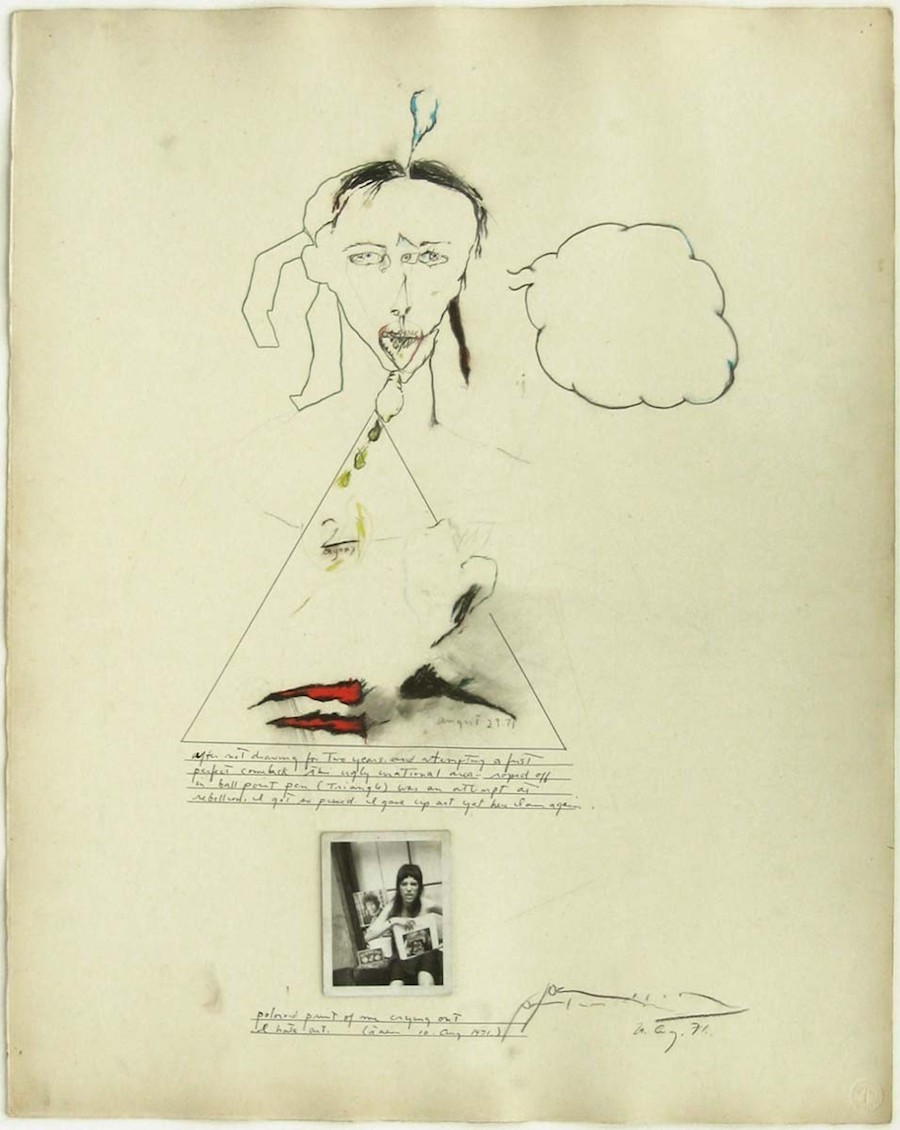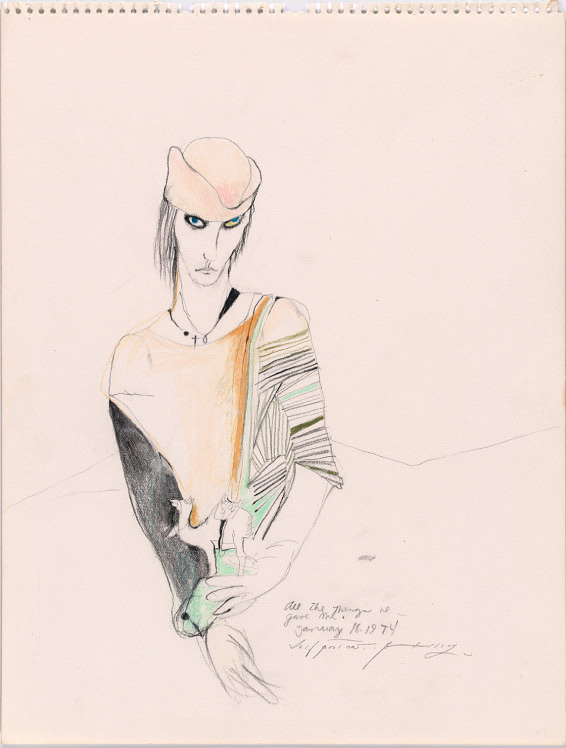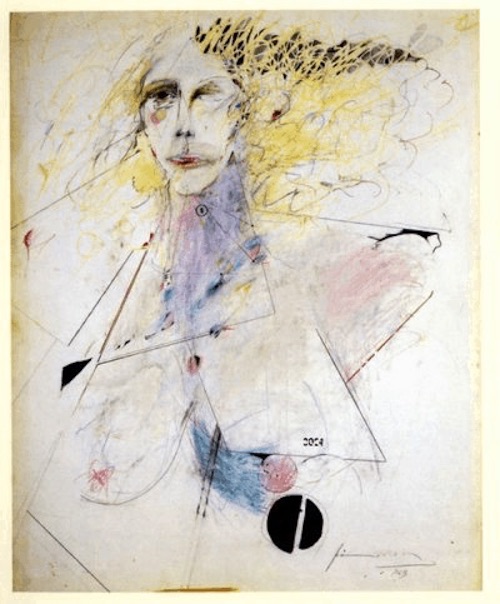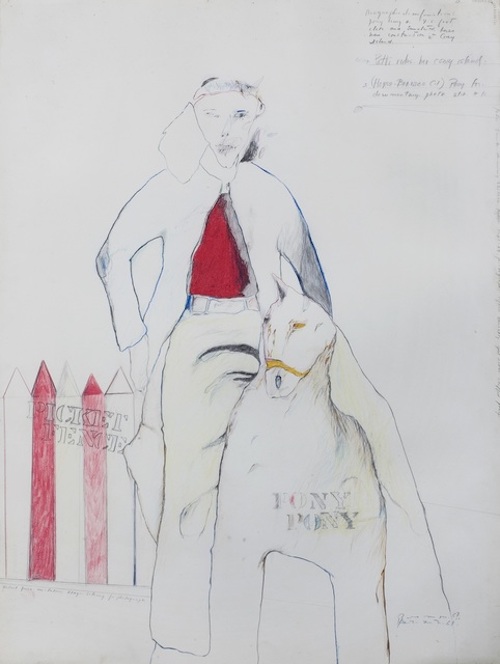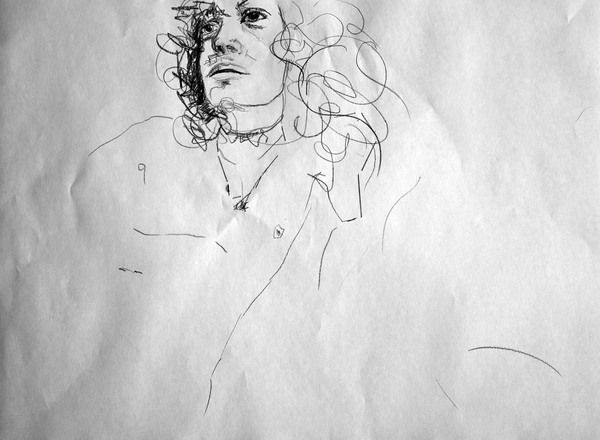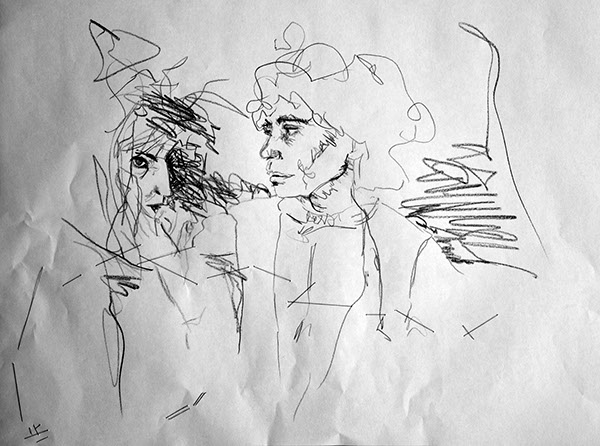If Sister Rosetta Tharpe was the Godmother of Rock and Roll, then Little Richard, who passed away Saturday at the age of 87 from bone cancer, deserves to be its Godfather. This is no empty honorific, despite the fact that Tharpe was already touring the country as a teenage gospel prodigy in 1932 when Richard Penniman was born in Macon Georgia, and “other musicians,” including Chuck Berry, Fats Domino, Bo Diddley, and Elvis Presley, “had already been mining a similar vein by the time [Little Richard] recorded his first hit, ‘Tutti Frutti’—a raucous song about sex, its lyrics cleaned up but its meaning hard to miss,” writes Tim Weiner in a New York Times obituary.
Little Richard “raised the energy level several notches and created something not quite like any music that had been heard before—something new, thrilling and more than a little dangerous.” Taking his lessons from Tharpe, he brought the dynamism of the gospel he was raised to sing and the profane rhythms of the blues into a high-voltage synthesis. Little Richard’s reputation needs no burnishing. He has never been neglected by historians of rock and roll. Nonetheless, it is startling to recognize, as guitar great Vernon Reid wrote in a Twitter tribute: “No Jimi, No Beatles No Bowie, No Bolan. NO GLAM, No Freddie, No Prince, No Elton, No Preston No Sly, No Stevie, WITHOUT Little Richard!”
Little Richard’s life story mirrors his early hero Rosetta Tharpe’s in several significant ways. Not only were they two of the most widely influential stars to emerge from the black church and onto secular stages, but they were also the music’s first stars to live openly gay lives, for a time, before succumbing to church and social pressures and returning to the closet. For Tharpe, that meant ending a long relationship with her romantic and touring partner Marie Knight and agreeing “to participate in a spectacle of a wedding endorsed and encouraged by the record label for profit,” writes Lynnee Denise, “in front a paying crowd of 25,000 paying guests.”
Little Richard famously walked away from his explosive career in 1957 to marry, adopt a son, and become a missionary. The marriage, and re-conversion, didn’t last. After four years, he was divorced following an arrest for “approaching men in a restroom,” notes France 24. “Richard—resentful that rock ‘n’ roll was taking off without him—soon returned to music with a triumphant tour of England.” (See him in a fierce performance in France above from 1966.) Then he went back to the church and never left. “By the late 1980s he had managed to merge his religious life and his stage persona, touring as a preacher and officiating at flashy celebrity weddings.”
He became something of a caricature of himself in later years, appearing as a high-camp figure in TV and film. Throughout his life, Richard identified openly as gay or bisexual, recounting stories of orgies and telling Penthouse in 1995, “I’ve been gay my whole life.” He also preached against LGTBTQ people, calling same-sex attraction “unnatural.” The L.A. Times’ Richard Cromelin understates the case in writing, “he variously modified his story and renounced and/or denied his homosexuality.” Depending on how one saw it, he was either divinely “healed” of his lifelong sexual orientation, or he was tragically beset by ingrained religious self-hatred.
Maybe none of this should matter much in assessing Little Richard’s musical legacy, except for the fact that his sudden appearance as a gay artist in the “then-macho world of rock,” as France 24 puts it, changed that world irrevocably. Little Richard’s flamboyance and teasing ambivalence became a hallmark of pop culture; his persona informed the stage career of nearly every queer and sexually ambiguous superstar to follow. As a “sexually fluid black man coming from the US south,” he gave black artists permission to experiment with identity and defy rigid stereotypes imposed by a legacy of slavery. There’s also no getting around the fact that “Tutti Frutti,” the song that “intoxicated legions of teenage fans eager to break loose from buttoned-up mid-century America,” was originally a song about anal sex. You can read those excised lyrics at Billboard. They involve the phrases “good booty” and “grease it.”
Like one of his most talented of his many offspring, Prince, Little Richard somehow found a lifelong home in a religion that rejected his sexual desire. This has been difficult for many of his fans to understand. Perhaps he was enacting this complicated, liberating, likely tortuous struggle to reconcile the irreconcilable while onstage screaming bloody murder and generally tearing the roof off the place. In whatever way Little Richard ultimately came to terms with his presence in music he claimed to have invented (despite Sister Rosetta), and yet also called “demonic,” it’s undeniable that the past sixty years or so of pop culture would never have happened without him.
Related Content:
The Woman Who Invented Rock n’ Roll: An Introduction to Sister Rosetta Tharpe
New Web Project Immortalizes the Overlooked Women Who Helped Create Rock and Roll in the 1950s
Chuck Berry Takes Keith Richards to School, Shows Him How to Rock (1987)
Josh Jones is a writer and musician based in Durham, NC. Follow him at @jdmagness
